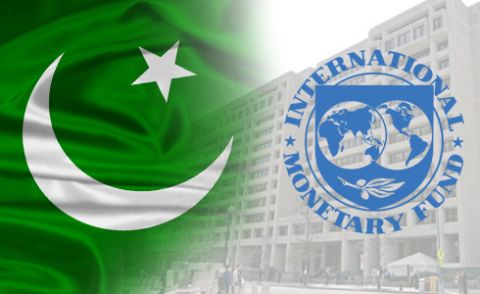LAHORE: Prime Minister Shahid Khaqan Abbasi and State Bank of Pakistan (SBP) firmly believe Pakistan can face twin challenges of widening external deficits and declining foreign exchange reserves.
In an interview to Bloomberg in August, PM Shahid Khaqan Abbasi had stressed Pakistan won’t be approaching IMF for another bailout and was considering introducing major tax reforms.
A text message sent to Bloomberg last week by PM Abbasi reiterated country’s debt repayments are being managed properly and there was no need for approaching the IMF.
Economic pundits and several media/print outlets have warned of Pakistan seeking another bailout package from the International Monetary Fund (IMF) since July due to deteriorating macroeconomic indicators.
World Bank in October forecast Pakistan’s external financing requirement at $17 billion for the current financial year, which is equivalent to 5pc or 6pc of gross domestic product.
Also adding pressure to the country’s economy are rising imports under China-Pakistan Economic Corridor (CPEC), which pushed current account deficit to more than double to touch $14.4 billion by end of September.
Gareth Leather, Senior Asia Economist at Capital Economic Ltd. In London said seeking a bailout from IMF at such a short notice, would be unwelcome considering elections are due to be held in Pakistan in August 2018.
He added IMF stays unpopular and government has options of either expending its foreign exchange reserves, allow the rupee to devalue or depreciate or seek financial likely from China.
Despite the strains, authorities have dismissed suggestions the country will request financial support from the International Monetary Fund or China.
Pakistan which is South Asia’s second largest economy has approached the IMF twelve times for loans since 1988.
Uzair Younus, a South Asia analyst at Washington-based consultancy Albright Stonebridge Group LLC said to Bloomberg “The economy booms and everyone wakes up and says we need more money. There are no more dollars and we go into a balance of payment crisis and then the IMF has to step in. I think we are going towards that, but we are not there yet.”
The political uncertainty has only added to the fiasco, which has seen the removal of ex-Prime Minister Nawaz Sharif and resulted in full blown out legal investigation against the ruling party’s family including Finance Minister Ishaq Dar who still is indisposed as a result of various graft cases which have implicated him for having wealth beyond his means.
S&P Global Ratings in 2nd week of November categorized Pakistan among “fragile five” countries that remain endangered to a normalization in global monetary conditions.
Pakistan is set to raise $2 billion from the auctioning of Eurobonds by end of November and according to Stephen Bailey-Smith investment strategist at Denmark-based Global Evolution Fonds A/S, the country’s financial appetite is rising aggressively and improbable to slowing down before next years elections, he said.
























